Go-To Guide for Rebooking Cancelled Flights - Intro
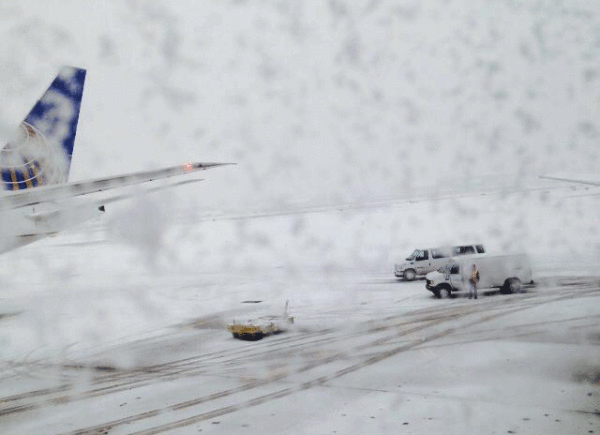
Flying from Chicago to San Francisco last month, my flight was cancelled and I had to rebook. Every other flight on American into SF was cancelled, but there was space available on United through Denver. I didn’t take it, and thought it might be a good idea to write down why.
Here is a strategy guide pulled together from DOT stats, travel hacking community consensus and airport maps and policies that should weigh in on your decision-making when you have to rebook travel. I’m breaking it into parts for easier reading, so stay tuned.
1) More connections means more opportunities to get stranded.
Given that some carriers have on time arrival rates of 78% and cancellation rates of 6% (especially regional carrier routes), you are really playing with fire when you add more connections in, particularly if you’re like me and just want to “keep moving”. I hate spending idle time in an airport, or worse “hurry up and wait”, but remember that those delay and cancellation factors are additive.
If you have 4 segments, you have nearly an expected value of 1 of a delay happening somewhere (given average luck, you can expect 1 of those 4 flights to be delayed). If connections are involved your chance of cancellation can rise to 24% (given average luck) for four segments and 36% for six segments [using expected values here, treating every flight as an independent variable - we’ll discuss how that’s probably not the case]
Pro Tip: Fly direct when possible, check alternate airports like DAL, LGA, OAK, SJC, LGB, ONT, BUR, FLL, DCA (MDW and BWI, but perhaps weigh what we see below) - it may mean more money and a longer drive into town (often not) but how much is your time and peace of mind worth?
2) Time of day matters - Later departures increase your chance of getting stuck
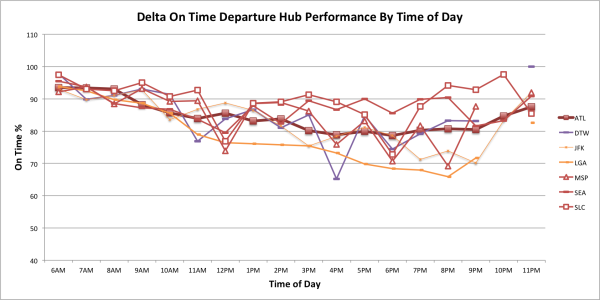
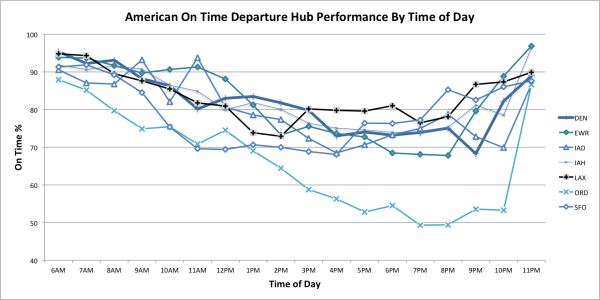
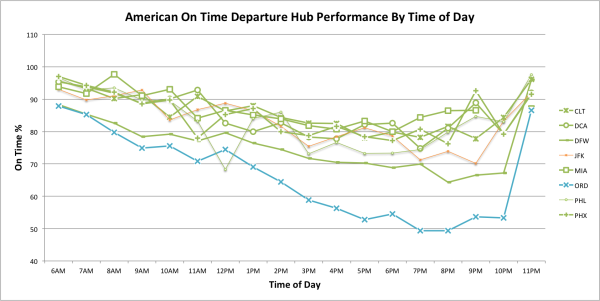
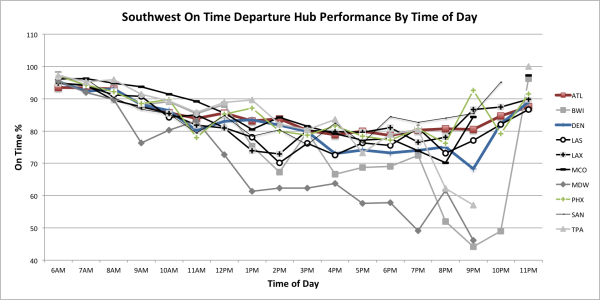
While we like to think all flights’ chances to take off are independent of each other, we’re still bound by fleet limitations and the rationing of gate slots. As a result, delays cascade throughout the day, and that 30 minute delay at 11AM may snowball into a 3 hours delay by 5PM and going late enough, crews time out and the flight is cancelled. Some carriers use an out-and-back routing system, while others, particularly United and Southwest tend to have their aircraft transit the country hopping all over traveling roadshow style (theoretically to increase utilization, but it tends to serious screw up the system in airports where there aren’t backup options)
Pro Tip: While I’m not a fan of 6am (or early) departures, they tend to suffer disproportionately less from delays generated from missing inbound aircraft.
Carriers with out and back routing systems also can just cancel two flights while they service that aircraft rather than scramble crew and aircraft at several stations down the road on the network. I don’t like random effects influencing my on-time departures so I avoid when I can.
Here’s a link to a table and a filterable graph of on-time departures and cancellations by time of day for the top 29 airports (split out by hubs for American, United, Delta and Southwest). Avoid ORD, BWI and MDW in the afternoons! I’ll be writing more on this area, particularly which airport/carrier combinations to seek or avoid when booking or rebooking tickets.
3) Make sure any airline-proposed itinerary gives you a confirmed seat to your destination - Standby is not an option!
When airlines cancel flights, many will propose putting you on a flight to another hub, with a standby seat from there to your final destination. This is not an option (unless you have top tier status and can jump the standby queue).
All the airline is doing is kicking the can down the road and you’re going to be in the same problem you are in now, just in a different, likely less familiar airport, even more tired and angry. Tell them to try again.
Pro Tip: Never, ever agree to an itinerary that doesn’t have a confirmed seat to your destination. You’ll just have to talk to another agent at another airport about the same problem you currently have.
Stay tuned for more on how to make the best of a bad travel situation. If you have particular strategies you use, add them in the comments below!

No comments yet.